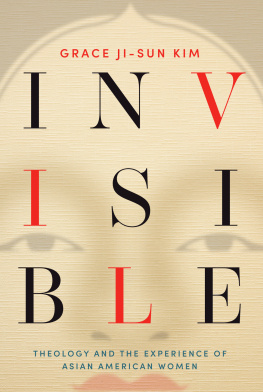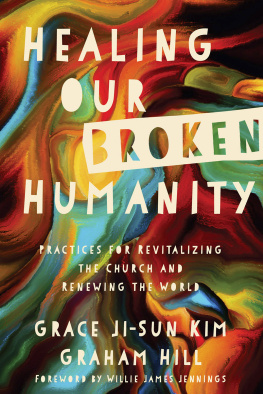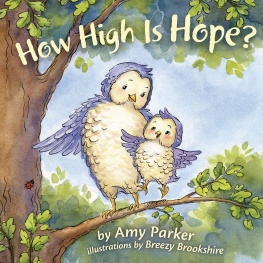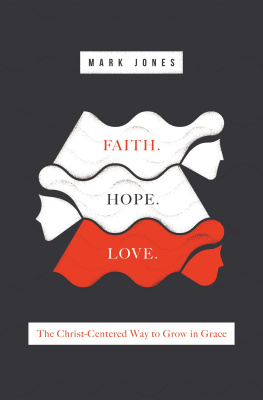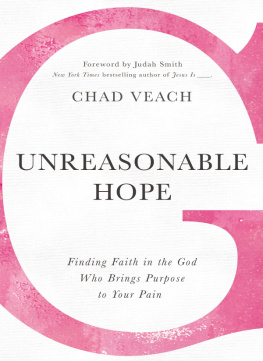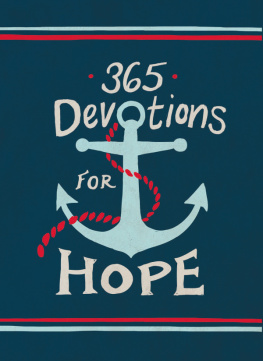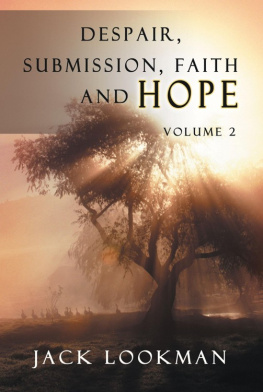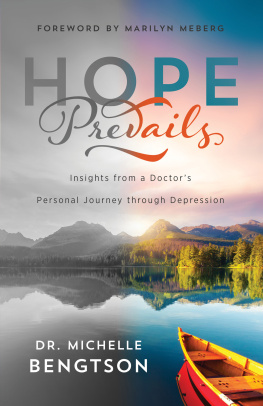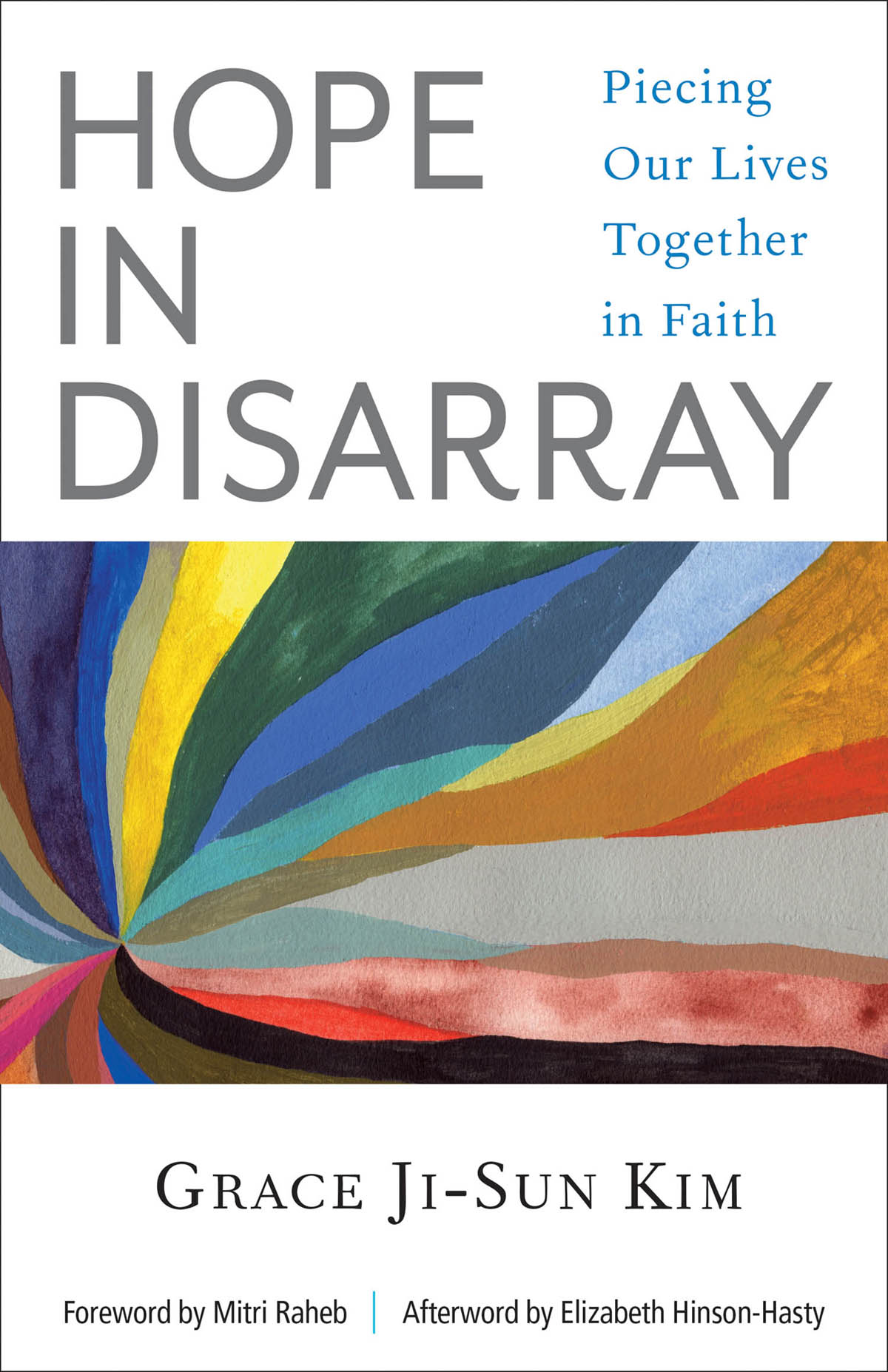PRAISE FOR HOPE IN DISARRAY

More than an invitation, Hope in Disarray is a passionate and personal summons to conscious and compassionate living. Ranging through terrain as rough and varied as climate change, racism, gun violence, and sexual abuse, this book challenges readers to examine our comfortable certainties, imagine a more just world, and take action to bring it into being.
Dr. Laura Alary
writer, storyteller, and educator
I turned the last page with a fresh infusion of inspiration to live a life of compassionate, sustained action, no matter how difficult the challenges.
Brian D. McLaren
author of The Great Spiritual Migration
HOPE
IN
DISARRAY
Piecing
Our Lives
Together
in Faith
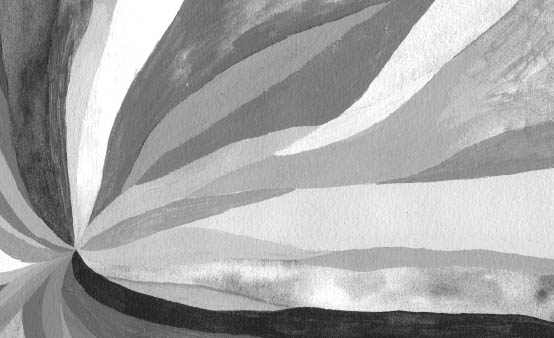
GRACE JI SUN KIM
Foreword by Mitri Raheb | Afterword by Elizabeth Hinson-Hasty

The Pilgrim Press, 700 Prospect Avenue East, Cleveland, Ohio 44115-1100 thepilgrimpress.com
2020 Grace Ji-Sun Kim
All right reserved. No part of this book may be used or reproduced in any manner whatsoever without written permission.
Scripture quotations, unless otherwise noted, are from the New Revised Standard Version of the Bible, 1989 by the Division of Christian Education of the National Council of the Churches of Christ in the United States of America, and are used by permission. Changes have been made for inclusivity.
Published 2020
Seeing Myself in the Eyes of a North Korean by Grace Ji-Sun Kim is reprinted by permission from the June 1, 2018, issue of the Christian Century. Copyright 2018 by the Christian Century.
Indigenous People Teach Us about Climate Justice by Grace Ji-Sun Kim is reprinted by permission from the October 23, 2019, blog of the World Council of Churches. Copyright 2019.
Becoming a Vulnerable Mother by Grace Ji-Sun Kim is reprinted by permission from the September 15, 2017, blog of Feminist Studies in Religion. Copyright 2017.
Mother Daughter Speak by Grace Ji-Sun Kim is reprinted by permission from the April 16, 2019, blog of Feminist Studies in Religion. Copyright 2019.
Uncovering Bill Cosbys Feet of Clay by Grace Ji-Sun Kim is reprinted by permission from the December 3, 2014, blog of Feminist Studies in Religion. Copyright 2014.
Memory Has No Statute of Limitations by Grace Ji-Sun Kim is reprinted by permission from the May 6, 2018, blog of Feminist Studies in Religion. Copyright 2018.
Western Domination and the Racialization of Beauty by Grace Ji-Sun Kim is reprinted by permission from the May 20, 2014, blog of Feminist Studies in Religion. Copyright 2014. Longing for Peace on the Korean Peninsula by Grace Ji-Sun Kim is reprinted by permission from the January 22, 2019, blog of Faith & Leadership. Copyright 2019.
Removing the Burden of Shame by Grace Ji-Sun Kim is reprinted by permission from the October 15, 2018, blog of Sojourners. Copyright 2018.
Pope Francis Seeks to Reawaken the Church by Grace Ji-Sun Kim is reprinted by permission from the December 5, 2013, blog of Good Faith Media. Copyright 2013.
Library of Congress Cataloging-in-Publication Data on file
LCCN: 2020934249
ISBN 978-0-8298-2114-7 (alk . paper)
eISBN 978-0-8298-2115-4 (ebook)
Printed on acid-free paper
21 22 23 24 25 5 4 3 2 1

| For my beautiful niece, Naomi Faith Bu who inspires me and pushes me
beyond my limits
as I wrestle with hope. |
CONTENTS
Rev. Dr. Mitri Raheb
Rev. Dr. Elizabeth Hinson-Hasty
FOREWORD

Our world today is a mess. Politically speaking, the lessons learned in the aftermath of WWII seem to have been forgotten. International law, human rights, and the Geneva Conventions are being threatened by many world leaders and corporations. One need only look at the picture of the G20 Summit to see what kind of world leaders are governing today: from Trump in the United States, Modi in India, Xi Jinping in China, Putin in Russia, Bolsonaro in Brazil, Prince Salman in Saudi Arabia to Netanyahu in Israel, it requires nothing more than a glance to see that corruption lies close to the surface and that most of those leaders were brought to power by nationalists and right-wing conservative religious groups.
Environmentally speaking, creation is in agony. With climate change, global warming, and ecological vandalism, we are facing the worst environmental crises of our time. Islands in the Asia-Pacific region are slowly vanishing, climate disasters are hitting vulnerable regions of the world, large regions in Africa are being deserted, causing mass climate migration, and oceans are being polluted to an extent that is endangering all bio life and diversity. We humans have been encroaching on nature and wildlife for so long. Their space has kept shrinking. The coronavirus of 2020 came as a revenge to tell us: If you think you can keep doing this, we can lock you in as well. Creation is groaning in pain, and though it is difficult to predict where we are headed exactly, the future looks grim.
World religions are in no better place. They have often been co-opted by the empire. Christian White-nationalism, Islamic Fundamentalism, Jewish Messianism, and Hindutvaism are on the rise. Religion has been used to colonize rather than liberate people; its patriarchal structures have been used to silence women rather than empower them; and its race-based approach has made religious services the most segregated hour at large.
Entering a new decade and closing another, we find ourselves thrust us into a position shaped, corroded, and fortified by ceaseless upheaval. It has led us to a state of division, outlined by the disruption of norms and traditional political parties, contrasted by the intense social and economic fragmentation of societies devastated by the effects of climate change; its a place where bodies are traded as commodities and social justice warriors confuse moral action for whirlwinds of cyber-attacks.
All the efforts to cure our world seem to be too little and too late. In such a context, it is easy to let those words of cynicism and stories of unimaginable loss leave us without hope; it is easy to believe that this world is lost and we need to await the one to come. Only ultimate optimists might stick to the notion that change will surely come and that justice will come for the deserved ones at the end. Hope in this case is nothing but a delusion. Real hope has nothing to do with delusion or illusion. Delusion is hope in costume, and it allows people to keep observing the world indirectly through a lens that falsely advantages us. It is a cheap hope that doesnt reflect the real situation on the ground. It is an inferior hope that shies away from confronting reality.
So how does one hope in times of disarray? How do we solve the tension between hope and disarray? This is a highly philosophical question but an existential one as well. The Italian philosopher and politician Antonio Gramsci, who was imprisoned by Mussolinis fascist regime, wrote in one of his letters, The challenge of modernity is to live without illusions and without becoming disillusioned... Im a pessimist because of intelligence, but an optimist because of will. Optimism, however, is not hope.


